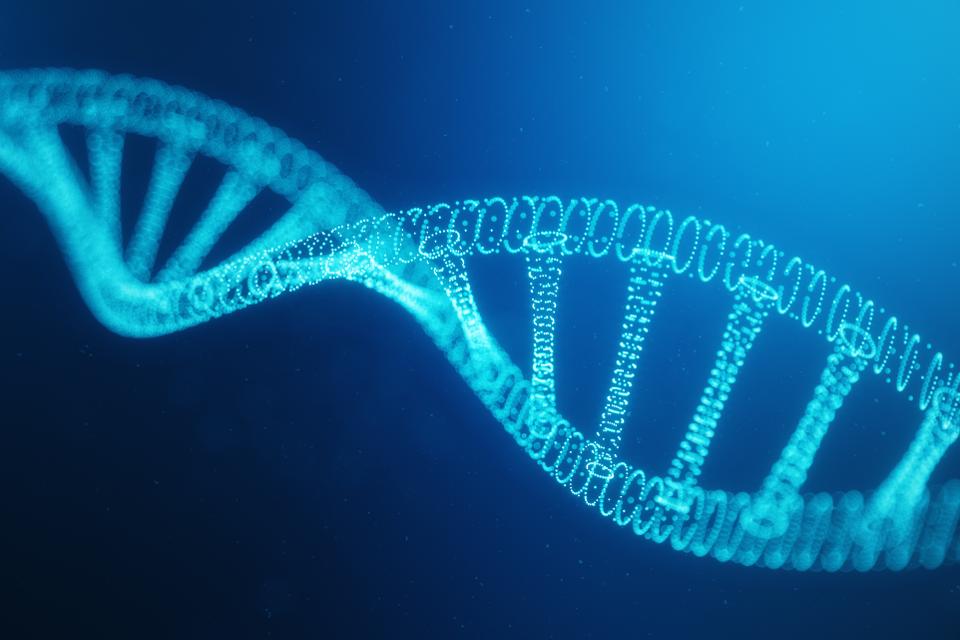

The aging process.
Getty
A few months ago, I received an email from a company called Chronomics that tests for epigenetic changes in your DNA. I’m still a bit scarred from my personal direct-to-consumer testing experience, so I was initially reluctant to explore yet another genetic test. But I find the study of epigenetics fascinating and finally agreed to sign on.
You see, we are born with our genetic code, or DNA, but epigenetics is the study of changes to your DNA that occur due to aging and environmental factors we’ve encountered throughout our lives – or the lives of our relatives. In fact, it has been shown that environmental stressors in our parents or grandparents can affect our DNA.
Epigenetic changes in our DNA can impact gene expression and activity and can be measured in multiple ways, including the measurement of methylation, which is what Chronomics uses. Methylation of a specific region of DNA may cause some genes to not be expressed, which basically means they are “turned off” or put in the “locked position.”

Artificial DNA model
Getty
Unlike the DNA we are born with, epigenetic findings can change over the course of our lifetimes. It has been postulated that examining these epigenetic findings can be used to help determine our ‘true age,’ as opposed to the chronological age associated with our birthdate. Your ‘true age’ may also be called your ‘biological’ or ‘physiological’ age and supposedly considers lifestyle and other factors rather than just the passage of time. As I learned at the Precision Medicine World Conference this week, some researchers are even looking at true age by body system, called an ‘ageotype,’ such as metabolic aging using a measure of blood sugar levels or immune aging using inflammatory markers.
I’ve taken other true age tests, including the trademarked one made famous by Dr. Oz. For that test, I filled out a long, detailed and fascinating questionnaire that asked me about everything from tobacco use to sleep patterns to social behaviors. I was pleased to find that my ‘RealAge’ was significantly lower than my chronological age. But what would I learn from an actual methylation-based genomics test? I spit in a tube and sent my DNA off to find out.
A few months later I received an email that my results were ready. The Chronomics staff reached out to schedule a phone walk-thru of my test results, which they tell me is standard for every customer. During my session, I spoke to the CEO, Tom, and simultaneously received my results via email. Bottom line: I learned that based on epigenetics, I’m two years older than my actual age. Womp. Womp.
Tom explained that this falls within the normal range, but I will admit that I was disappointed. I am a never-smoker, my BMI is normal, I exercise, watch my alcohol intake, and rarely eat red meat. As the CEO of a start-up, I can’t say that my stress level is low, but I do make getting a good night’s sleep a priority and try hard to focus on good health.
But my Chronomics measure was not based on my awesome questionnaire information and was instead calculated purely on my actual methylation findings. I was told that being diagnosed with an autoimmune thyroid disorder in my twenties might have had some impact on this score.
We discussed the ways a person can improve the rate at which they’re aging, and I realized that I’ve already hit 90% of these marks. Perhaps I could eat fish more than twice a week, but will that really move the needle? Tom explained that I could change my diet, take the test again in six months, and see if my true age had improved.
Suddenly, I remembered a free app my very youthful husband used a few years ago that guessed your age based on your photo. My husband uploaded his photo and was unhappily surprised when the app guessed he was 15 years older than his actual age. He rapidly tried a second photo and then a third with the same result. Then he used a photo of me – the app guessed I was 10 years younger than my actual age. Many photos later, he finally retired the app.
I think I may do the same with the aging test. It was an interesting experiment, and I was impressed with the website, the process, and the detailed explanation of the results I received. But the science on methylation and true age is still evolving, I already know what I should do to maximize my health, and I’m doing most of those things. In 2020, I’m going to try to continue maximizing my health and avoid spending too much time stressing about my true age – after all, the stress could age me.














